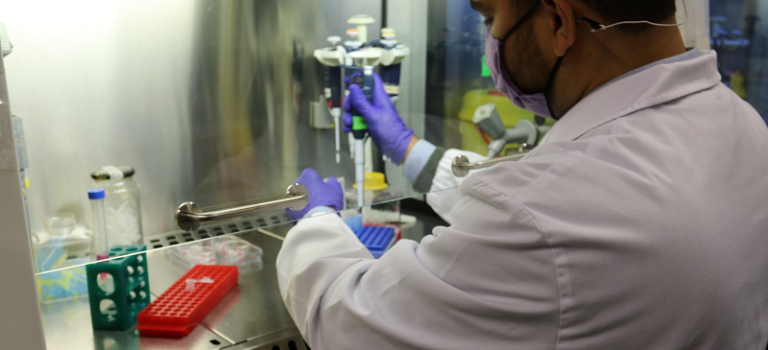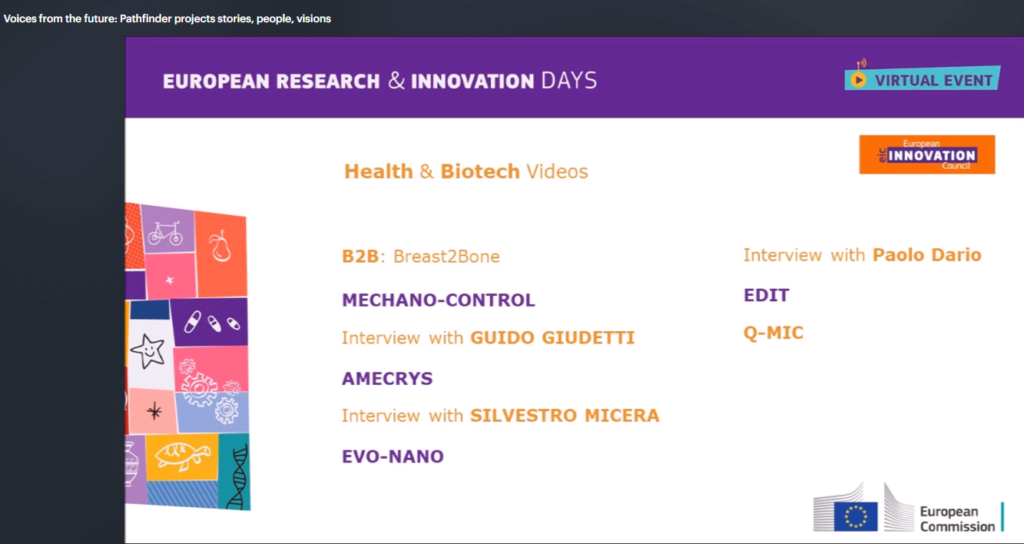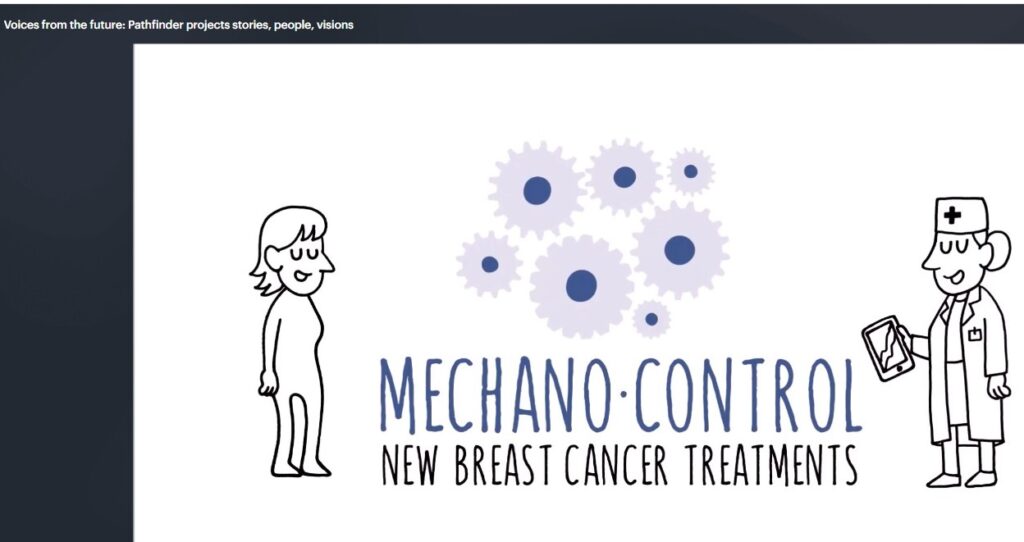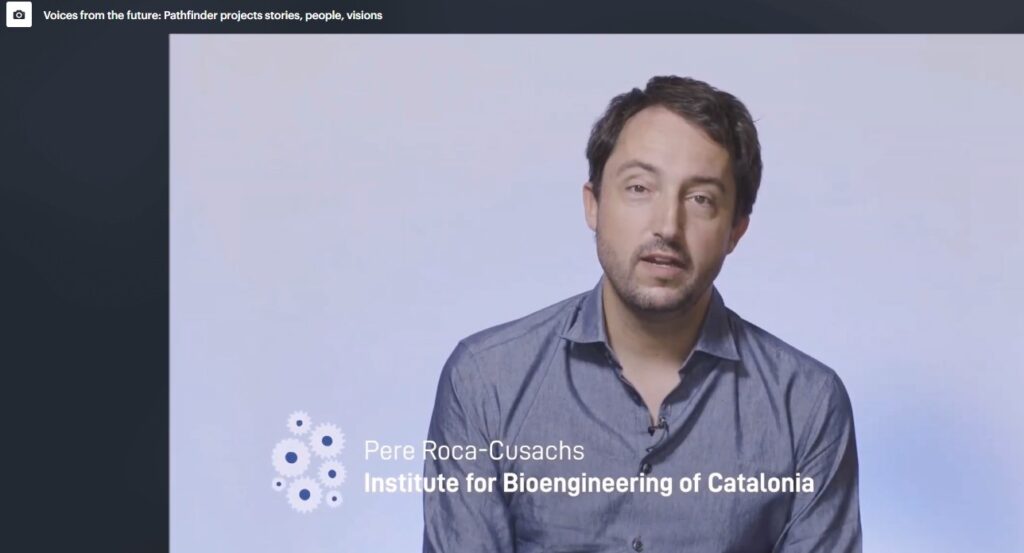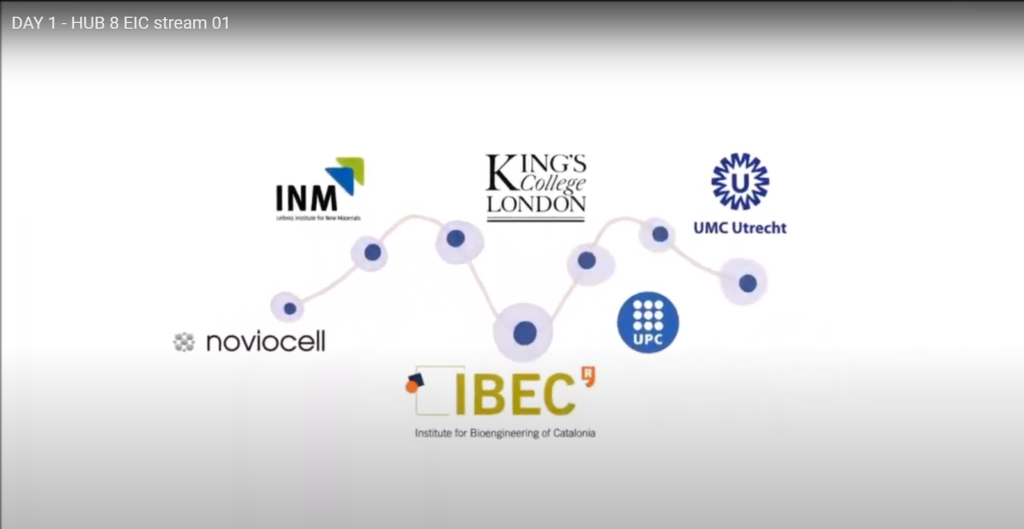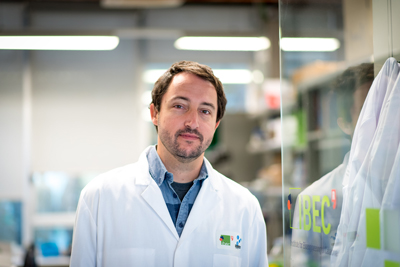Multidisciplinarity and collaboration are key to advancing towards new scientific discoveries, and international projects such as Mechano·Control are proof of that. Nimesh Chahare is a Ph.D. student under the supervision of Xavier Trepat and Marino Arroyo, both PIs of the Mechano·Control project.
Nimesh is working on a microfluidic platform to investigate the role of biophysical forces on cells/tissues. The idea came up thanks to a conversation with his colleague Dr. Anabel-Lise Le Roux while discussing new ideas for stretching cells, and they started working right away on this new idea to make it come to life.
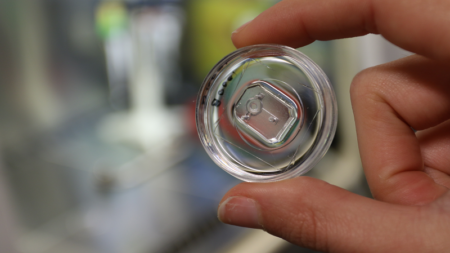
To measure the role of biophysical forces, they are developing a microfluidic stretching instrument called MISTI, that can control the biophysical environment via protein patterning, extracellular matrix stiffness, and dynamic stretching. Furthermore, MISTI is compatible with high-resolution microscopy and mechanical measurements.
MISTI could be a critical tool for the mechanobiology community to probe cells and tissues mechanically at various time scales. Why is that? Because it is a flexible system compatible with upright and inverted microscopy, which will make experiments on stretching cells or tissues more accessible for imaging and drug treatments.
“We could also scale this system for high-throughput experiments without live imaging”
Nimesh Chahare, PhD Student at IBEC
One of the goals of the Mechano·Control project is to develop new technologies to manipulate cells and tissues. MISTI would be very useful to unravel the physical principles behind the biological material organization. Trepat and Roca-Cusachs labs’ past work is a perfect illustration of this: from discovering hydraulic fracture in epithelial tissues to identifying critical parameters for mechanobiology such as loading rate for cells [1,2]: all done with stretching of cells and tissues. The enhanced understanding of mechanobiology would provide new insights to solve problems in multiple fields including human physiology and material design.
“These experiments allow us to understand the beauty of nature. They could inspire us to newer ways of thinking. The knowledge we build could help the world design new materials, organize transport systems, or use our setup in ways we couldn’t imagine”
Nimesh Chahare, PhD Student at IBEC
Thanks to the Mechano·Control project Nimesh has met and interacted with people all over the world. In fact, a student from the UK came to Barcelona to work on optimizing the fabrication of MISTI thanks to the project. “This network fosters a collaborative spirit that moves science further” adds Nimesh.
1. Casares, Laura, et al. “Hydraulic fracture during epithelial stretching.” Nature materials 14.3 (2015): 343-351.
2. Andreu, Ion, et al. “The force loading rate drives cell mechanosensing through both reinforcement and cytoskeletal softening.” Nature communications 12.1 (2021): 1-12.
